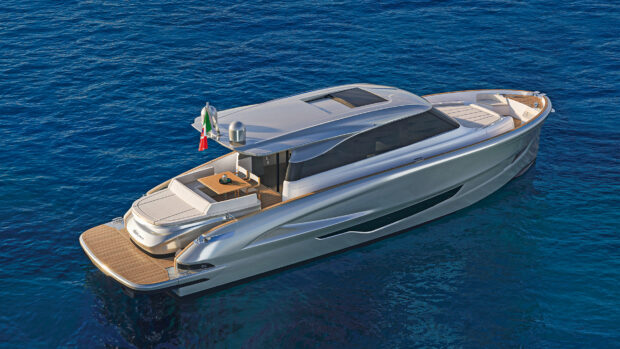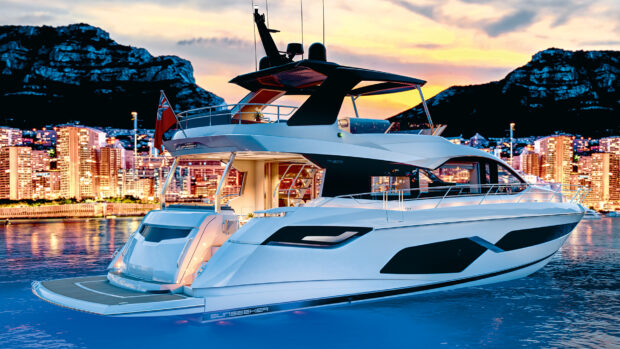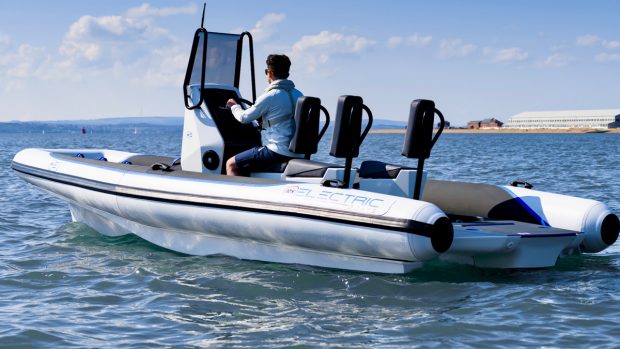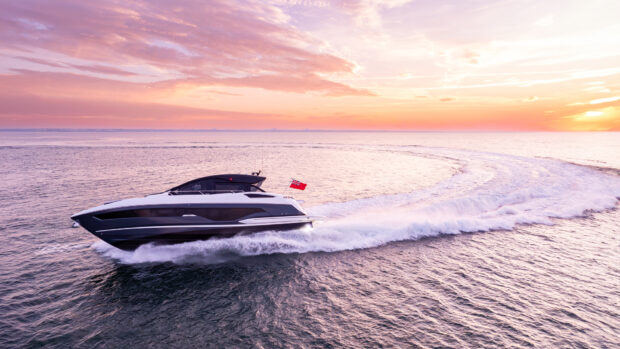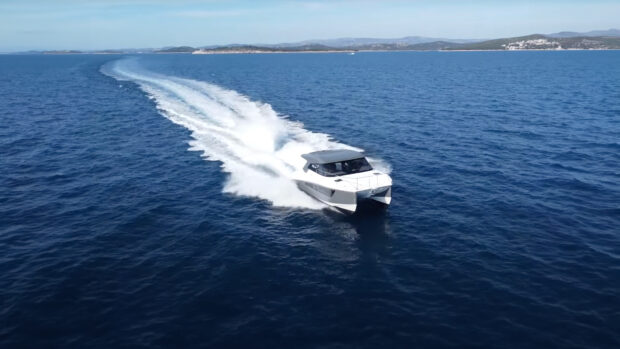For as long as I can remember, I’ve wanted to take my boat to the Isles of Scilly – and having moved to the West Country three years ago, the fact that it’s now 100 miles closer has made it much more realistic.
I originally planned to head for the Scillies in 2020, but Covid put paid to that. The following year, a combination of a line around our outdrive and some awful weather made it impossible once again. But in 2022, I was determined to make it happen.
The early season weather looked promising. The engine and outdrive of my Windy 28 Ghibli had been serviced, we had spares on board, and the boat was fuelled and ready to go.
To load the dice, I also booked the whole of July off work – and when a spell of settled weather came our way, Jess (my wife) and I were off from Brixham, bound for our first stop in Falmouth.
The Start Point
Any boat trip that involves Start Point can be a worry, because it’s the moment when you find out if your calculations have been accurate. In the event, it was as flat as a pancake – by far the flattest I have seen in years.
I picked up the speed to 2,900 revs and 27 knots and the boat flew along. Basil, who was on lookout duty, suddenly pricked up his ears and in a flash, we were joined by an entire pod of dolphins.
Article continues below…

Isles of Scilly cruising: Dutch trawler yacht owner shares an unforgettable adventure
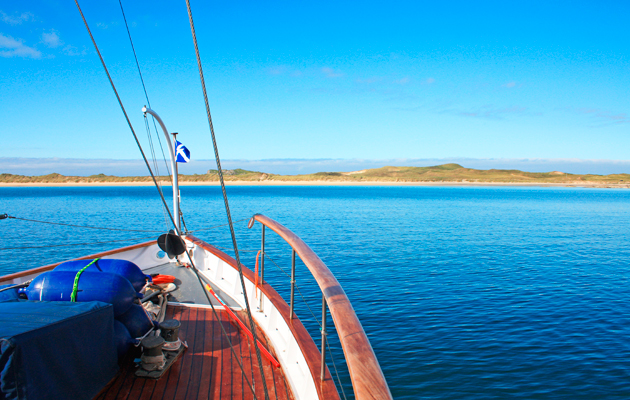
Top 10 remote island destinations around the UK revealed
In his latest cruising feature, Peter Cumberlidge picks out the best remote island destinations you can easily reach from the
I slowed down to 8 knots and the dolphins stayed alongside us for more than 20 minutes, darting in and out of our bow wave! I elected to go straight across the bay to Falmouth, passing close to the Eddystone Lighthouse. That’s normally something I would keep well away from but the sea conditions were so good that a closer look seemed like a great idea.
After a blissful 72 miles, we were in Falmouth. We topped up with 140 litres of fuel at Falmouth Yacht Haven and then went to find a berth. Rather than trying to book ahead, you simply turn up and they find you a spot. You may have to raft up if it’s busy but being in the middle of town is a major bonus.

Eddystone Lighthouse is a pretty sight when it’s flat calm
First sight of the Scillies
While the weather looked reasonable for our morning departure, it was forecast to build from the NE late on. I worked out that, as long as we cleared Falmouth by 1000, only the last hour before our arrival at St Marys ought to be lumpy, so we set off, keeping reasonably inshore all the way down to Lizard Point.
There were plenty of yachts down here, taking advantage of the building easterlies but I left them behind, aiming straight for Wolf Rock Lighthouse, six miles off Land’s End, before heading south-east to avoid the end of the Traffic Separation Scheme.
As predicted, the last hour was a bit rough but, as we rounded the southern end of St Mary’s, the aquamarine sea, stunning white beaches and low-lying islands looked superb. It was then a game of ‘spot the buoy’.

Tresco feels like it’s been plucked from the heart of the Caribbean
There are around 40 visitor moorings but it was pretty busy, with several boats looking for one that left enough depth to stay afloat at low water. Once attached, the harbour staff came over and we paid our fees of £21 per night.
The all-states-of-the-tide moorings were then a good tender ride ashore to a semi-drying pontoon at the base of the harbour wall near the ferry berth. There are perfectly adequate showers and toilets here and the quaint capital, Hugh Town, is right on your doorstep.
Island highlights
We spent the next few days exploring the islands. St Agnes is rugged and beautiful with sandy beaches and crystal clear waters.
The larger island of Tresco is home to some stunning sub-tropical gardens, as well as the Valhalla collection of ships’ figureheads and some seriously expensive holiday homes. And Bryher provides a lovely contrast between plunging cliffs and white sandy coves.

The ships’ figureheads make a charming diversion
Rather than take our own boat though, we used the local trip boats to run between the islands. They’re helmed by highly skilled skippers, they’re great value and it’s entirely stress-free.
Toward the end of our stay, we were again blessed with stunning weather so, rather than head directly home, we decided to head even further west to the Bishop Rock lighthouse.
We started early on a misty morning.
The passage between St Agnes and the uninhabited island of Annet was eerily quiet. Annet is a bird sanctuary, with lots of seals and swirling currents. And Bishop Rock Lighthouse is normally a site of great rolling swells. There are countless shipwrecks out here but on a flat calm day, it’s a truly stunning place to visit.

Tresco’s tropical gardens are wonderful for a walk
Falmouth and Fowey
From Bishop Rock lighthouse, we headed back toward Land’s End and onward for a lunch anchorage at St Michael’s Mount. If you want to take advantage of the great value fuel at Penzance like we did, just be aware that it needs to be near high water for you to access it.
From Penzance, we decided to take an inshore route along the Cornish coast, back into Falmouth for a boat and crew wash and a bit of a tidy up, before heading on again for a lunch stop in the Helford River.
We found a beautiful spot on the moorings before exiting and heading east again, popping into Mevagissey and passing Par, before heading into Fowey for an overnight stop on a pontoon berth opposite the town.
It was the perfect place for our last meal ashore and the end of a magnificent adventure. And when we finally arrived home back in Brixham to reflect on our epic trip, it turns out we’d covered a total of 336 miles on just 540 litres of fuel. Don’t you just love a single-engined boat?
First published in the January 2023 issue of MBY.
If you enjoyed this…
Be first to all the latest boats, gadgets, cruising ideas, buying advice and readers’ adventures with a subscription to Motor Boat & Yachting. Available in both print and digital formats, our monthly magazine will be sent directly to your home or device at a substantial discount to the usual cover price. See our latest offers and save at least 30% off the cover price.

Basil is first to spot the dolphins…





